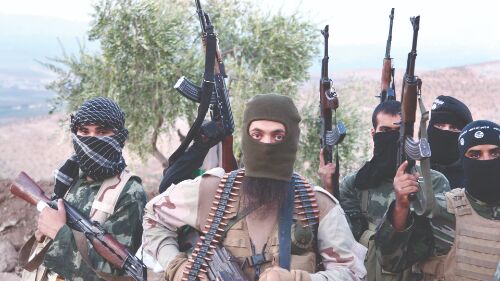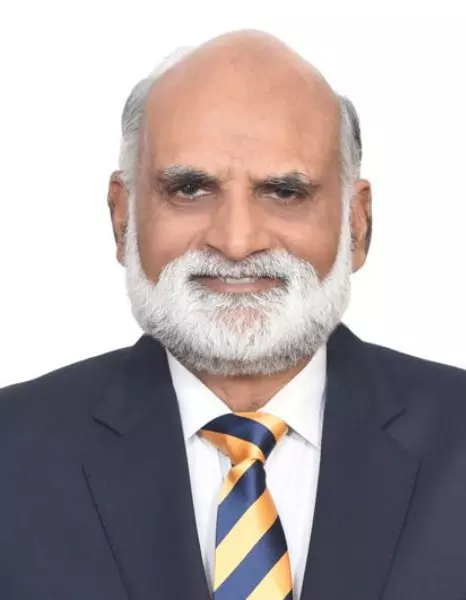Fuel for terrorism
Illicit trade is the lifeblood of terror financing, checking its flow is a dire need to abate the evil

Terrorism is one of the greatest man-made threats to humanity. It is pure evil, and no country today is immune to this menace. Disturbingly, during the past few decades, leading intelligence and law-enforcement agencies around the world have found conclusive evidence that illicit trade in terms of smuggling and counterfeiting is the fuel that drives some of the deadliest terror organisations. As per the United Nations Commission on Crime Prevention and Criminal Justice (UNCCPCJ), such illicit activities are the second-largest source of income for carrying out criminal activities such as terrorism. Moreover, with rapid technology evolution, the advent of Bitcoin, darknet and fraudulent e-commerce websites, illicit trade and organised crime has found a ripe terrain to flourish, thereby increasing the security threat and danger to nations worldwide.
Let us draw our attention to the long-established link between illicit trade and terrorism. The ACG (Anti-Counterfeiting Group), a UK-based international association estimates that the global trade in illicit goods is a USD 461 billion criminal business, run by organised international gangs, and the proceeds of which are used by terrorist organisations to finance their evil agendas. Investigations around the world have found out that the smuggling of varied products, including cigarettes, oils, luxury goods, electronic items, arms and ammunition, gems and stones, drugs, wildlife etc. are the major contributors to financing terrorism.
The FBI for instance had stated that Hamas has since long raised funds through very lucrative illegal activities including drug trafficking, counterfeiting of products among others. Hezbollah, the lethal militant group has been raising funds from smuggling of arms and counterfeiting operations to credit card frauds. Cigarette smuggling due to its low risk and high-profit business operations has been the choice for Al-Qaeda, Lashkar-e-Taiba, Taliban, Irish Republican Army, Boko Haram and many more to finance their activities. Douglas Bettcher, co-ordinator of the framework convention team of WHO's tobacco-free initiative had warned, and I quote "I would say that EU is the worst sufferer at this point but any country including India could soon be a victim of this new development". Moreover, in India, the D-Company was identified as a terrorist organisation thriving on the black market of counterfeit and contraband goods. According to experts, the transformation of D-Company into a terrorist entity was believed to coincide with its entry into the trade of illegal goods.
According to the Global Terrorism Index 2020, the past decade has seen the largest surge in terrorist activity in the past fifty years, and in 2019, the Taliban, Boko Haram, ISIL and Al-Shabaab were the four groups responsible for 7,578 deaths from terrorism, representing 55 per cent of total deaths in 2019. In India, as recent as November 2020, a drugs smuggling case in Jammu was reported, where the NIA had indicated that the money was likely being used for terror funding in the country. Hence, it is clear, that behind every terrorist organisation, stands a well-oiled financial system and this is firmly established through illicit trade in a plethora of items, as mentioned.
The finances which are attributed to illicit trade are clearly the jugular vein of the terror organisations and that needs to be cut. A deterrent environment where counterfeiters and smugglers are prevented to make a profit by making use of the arbitrage opportunity is the need of the hour. For instance, increased taxation and duty rates on products lead to increased illicit trade and ultimately defeats the purpose of increase in taxation as it leads to allocation of more funds in security expenditure to curb terror activities a part of which is financed by illicit trade. It is therefore essential that a robust policy framework, supported by effective enforcement mechanisms to prevent this global scourge, be put in place.
Global Institutions and enforcement agencies have been concertedly trying to disrupt and dismantle the crime networks. INTERPOL's Organized and Emerging Crime Strategy, EUROPOL's European Counter Terrorism Centre, the Terrorism Prevention Branch (TPB) of the United Nations Office on Drugs and Crime (UNODC) among others have somewhat created the desired dent. In India also, the government has enacted laws and the enforcement agencies have been enabled to detect and prevent counterfeiting, smuggling, and financing of terror. Significant technological advancements have also been made by the industry and the government to tighten the infringement.
The apex industry body, FICCI's dedicated forum CASCADE (Committee Against Smuggling and Counterfeiting Activities Destroying the Economy) engages with the government, enforcement agencies, industry representatives and consumers to generate awareness on this issue. In its report on 'Illicit trade – fuelling terror financing and organised crime' released in 2017, it had recommended better awareness about counterfeit and smuggled products through government initiatives; partnering of government and industry to run campaigns for reducing illicit markets; development of task force to check the growth of illicit trade and links between terrorism, organised crime and illicit trade; and moves to draw a balance between government revenue needs through taxation and the incentives illicit markets get through increased taxes on goods.
With each passing day, the acts of terror organisations are causing great harm to human lives, putting tremendous pressure on the security system — pressures that are financial, physical, and mental. With illicit trade being one of the most preferred means of criminal financing, choking its finances will be critical to foil the plan of these anti-social elements who aim to destroy the physical and economic security of a nation. Terrorism internationally has reached an alarming scale, and the fight against it indeed demands a comprehensive response. Combating smuggling and counterfeiting must be a fundamental pillar of that response.
The writer is the Chairman, FICCI CASCADE and Senior VP, Corporate Affairs, ITC Ltd.
Views expressed are personal



